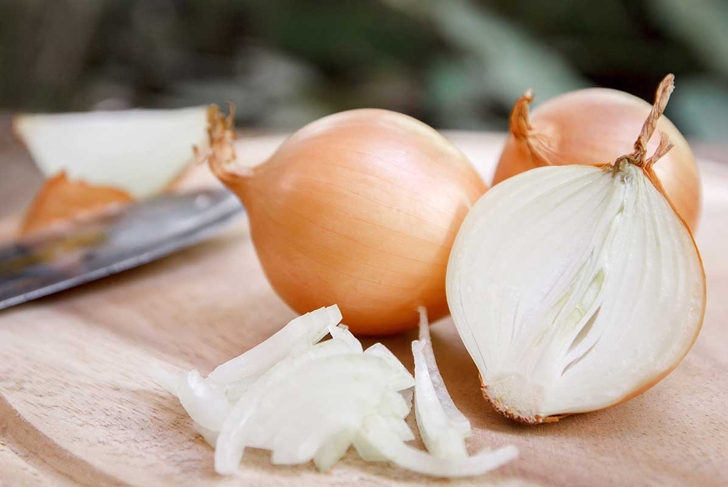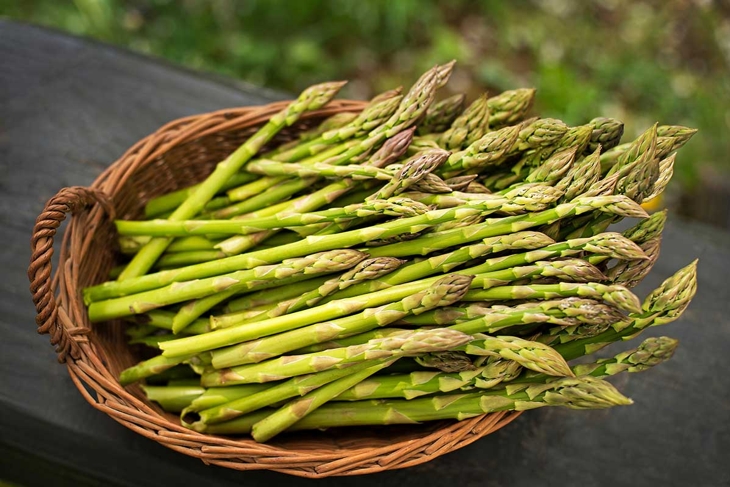The 10 Best Prebiotic Foods for Any Diet

Prebiotics are a group of nutrients that act as food for the microbiota in the stomach. This process both encourages the growth of healthy gut bacteria and also releases compounds with a range of other beneficial effects into the body. Many plant foods contain prebiotics, and ongoing research continues to discover more.
Garlic

One of the easiest prebiotics to include in your diet is garlic. This savory, flavorful herb boasts antioxidant, anti-inflammatory, and lipid-lowering effects, along with its ability to promote good gut health.
Many of these qualities stem from prebiotics like fructooligosaccharides (FOS) and inulin, a prebiotic dietary fiber. Thanks to these, garlic encourages the growth of Bifidobacteria and can inhibit bacteria responsible for diseases.
Recent research shows that garlic's compounds also have anti-tumor properties, reduce the risk of cardiovascular conditions, and can lower blood glucose levels.
Onions

The onion is another staple prebiotic that fits into a variety of diets and meal plans. Onions are a close relative of garlic, so it’s not surprising they are also rich in prebiotics like inulin and FOS.
Studies have found evidence of onions improving the cardiovascular system. Other bonuses come from compounds like quercetin, which has antioxidant and anticancer effects.
Leeks

Leeks are also close relatives to onions and garlic and offer very similar effects thanks to their inulin content. They’re also nutrient-dense, meaning they have a lower calorie count but are rich in minerals and vitamins.
Most notably, leeks account for nearly 40 percent of the daily recommended value of vitamin K. This vitamin promotes blood clotting, bone metabolism, and a range of other complex functions. Because leeks have a milder flavor than onions while providing many of the same health benefits, they are a great substitute for people who dislike the stronger vegetable.
Asparagus

Eating a nutritional diet should not be a chore, but it can often feel like one when trying to fit healthy foods into a meal plan. Flexible prebiotics like asparagus prevent dietary fatigue and make maintaining a nutritious diet easier, all while providing the benefits of prebiotics.
Try stir-frying this unique veggie in an Asian-style dish, or grilling it over charcoal or hardwood embers. It also works well as an ingredient in soups and stews. Plus, in recent years, raw asparagus has become a common component in salads.
Barley

Most people recognize barley for its use in brewing beer and other beverages. However, this cereal grain is useful for far more. Barley contains beta-glucan, a prebiotic fiber that has extensive effects on cholesterol alongside its gut-boosting benefits.
Studies show that beta-glucan can lower both total and LDL or bad cholesterol levels, reducing the risk of cardiovascular disease. While it may seem difficult to add barley into your diet, it is actually quite simple. Try incorporating barely into soups or using it in a simple risotto or anywhere else you’d use rice.
Whole grain oats

While barley is uncommon in most modern diets, whole grain oats have become a health food staple. Like barley, they are rich in beta-glucan, which experts consider their major active component. However, whole grain oats have even more to offer.
Studies show oats have strong anti-inflammatory and antioxidant properties. Plus, they are easy to toss into almost any dish. Oats are a great additive for bread, cookies, cereals, and yogurts. Alternatively, they can be a great snack as oatmeal or mixed with honey and nuts.
Chicory root

Inulin is among the strongest and most widely available compounds with prebiotic effects. Chicory root is a coffee-flavored plant that is incredibly rich in inulin. In fact, chicory root contains so much of the dietary fiber that it is the main source of extraction for commercially produced inulin.
Chicory root is also a perfect source of antioxidant, anticancer, anti-inflammatory, and antiparasitic compounds. However, unlike many of the other inulin-rich foods, chicory root is not a common staple. Some people roast and grind the plant to brew a coffee substitute. Others simply add it to drinks or desserts for a strong, coffee-like flavor.
Konjac root or elephant yam

The average American is likely unfamiliar with konjac root, but it has been a popular ingredient in Asia for centuries. Konjac root contains high levels of glucomannan fiber, a highly viscous dietary fiber that many experts consider a prebiotic. Glucomannan, like other prebiotics, promotes the growth of healthy bacteria in the gut. It may also help with and improve carbohydrate metabolism.
In Japanese cuisine, konjac root is widely available in noodle-like strips that are perfect for udon and sukiyaki. It is also available as a jelly, and many vegans use it as an alternative to gelatin. Some cultures grind the root into flour and use it to create different types of noodles.
Apples

It is common knowledge that apples are healthy fruits, but their prebiotic properties are a recent discovery. Apples are fibrous. Pectin, a type of soluble fiber, makes up most of this feature.
While more research is necessary to fully explore pectin's effects, current research indicates that it is a powerful prebiotic. The fiber promotes healthy gut microbiota, suppresses weight gain, limits fat accumulation, and decreases inflammation.
Cocoa

Occasionally, articles claim that chocolate is healthy. While the sugar and fats in most chocolate products make this less than true, the claim is not completely unfounded.
Cocoa powder is the result of crushing cocoa beans and removing the cocoa butter. It also contains flavanols with notable prebiotic properties such as lowering the risk of type 2 diabetes. People who want to add some chocolate flavor to their diet without all of the sugar can add a little cocoa powder to their oatmeal, smoothies, or yogurt.
alive prefers to use body-positive wording. So we typically avoid talking about weight loss, and rather, frame it around healthy weight management or maintenance.
Sounds good! I don't love when any food claims to help with weight loss anyway since it's .... not really true at that base level!




